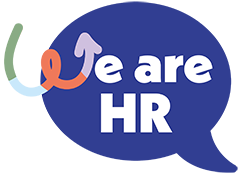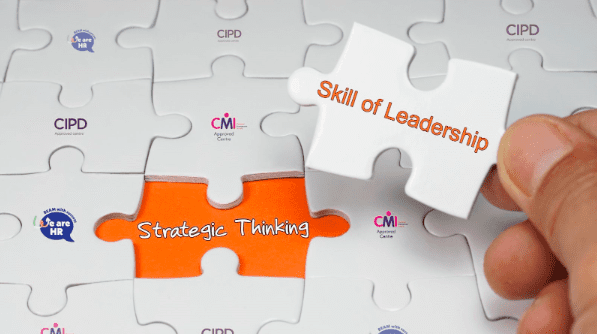Table Of Contents
- Unlocking Leadership Potential and Driving Change
- Introduction The Power of Great Leadership
- Characteristics of Exceptional Leaders
- Identifying Future Leaders
- Developing Leadership Skills The Growth Mindset
- The Role of Training in Leadership Development
- CIPD and CMI Courses Your Pathway to Leadership Success
- Take the Next Step in Your Leadership Journey
Introduction The Power of Great Leadership
Great leadership goes beyond a title—it’s about vision, influence, and impact. Effective leaders inspire their teams, empower others to grow, and drive meaningful change within their organisations. As Simon Sinek emphasises in Start with Why, leaders who understand their purpose can inspire those around them to achieve remarkable results.
In today’s evolving business landscape, the demand for strong, capable leaders continues to grow. But what makes a truly exceptional leader? And how can you develop the skills to become one? This article explores the key qualities of great leadership, how to identify future leaders, and how you can elevate your own leadership skills.
Characteristics of Exceptional Leaders
Leadership is not about being the loudest voice in the room; it’s about fostering collaboration, trust, and innovation. James Kouzes and Barry Posner, in The Leadership Challenge, identify five practices of exemplary leadership:
- Model the Way: Leaders set an example by aligning actions with shared values.
- Inspire a Shared Vision: They envision the future and enlist others in that vision.
- Challenge the Process: Leaders seek innovative ways to improve and are willing to take risks.
- Enable Others to Act: They foster collaboration and build spirited teams.
- Encourage the Heart: Recognising contributions and celebrating accomplishments is key.
These practices underscore the importance of integrity, vision, innovation, empowerment, and recognition in leadership.
Identifying Future Leaders
Recognising rising stars within an organisation is crucial for sustained success. Future leaders often exhibit:
- Proactive Problem-Solving: They anticipate challenges and address them proactively.
- Strong Interpersonal Skills: Collaboration and motivation come naturally to them.
- Curiosity and Continuous Learning: They seek opportunities to develop new skills and knowledge.
- Accountability: They take responsibility for their actions and commitments.
- Influence: They inspire and earn the respect of their peers.
John C. Maxwell, in The 21 Irrefutable Laws of Leadership, emphasises the “Law of Respect,” stating that people naturally follow leaders stronger than themselves.
Developing Leadership Skills The Growth Mindset
Leadership is not solely an innate ability; it’s a skill that can be nurtured. Developing a growth mindset is key to becoming a better leader. This involves:
- Embracing Continuous Learning: Stephen R. Covey’s The 7 Habits of Highly Effective People highlights the importance of “Sharpening the Saw,” or continuous self-improvement.
- Seeking Feedback: Constructive feedback is viewed as an opportunity for growth.
- Embracing Challenges: Challenges are seen as opportunities to learn and innovate.
- Encouraging Innovation: Leaders foster an environment where creative problem-solving is valued.
By adopting these approaches, leaders can cultivate an environment that promotes personal and organisational growth.
The Role of Training in Leadership Development
While experience is valuable, formal training in leadership and management provides structured learning, industry insights, and practical strategies to enhance leadership capabilities. Professional qualifications in leadership help individuals gain credibility, enhance decision-making skills, and apply best practices in real-world scenarios.
As Tony Blair discusses in his book on leadership, effective leadership requires continuous learning and adaptation to navigate complex challenges successfully.
CIPD and CMI Courses Your Pathway to Leadership Success
If you’re ready to develop your leadership potential or support emerging leaders in your organisation, professional qualifications in HR and leadership management can make a significant impact.
CIPD Level 3, Level 5, and Level 7 in HR and Leadership
- CIPD Level 3 Foundation Certificate in People Practice: Ideal for those starting their career in HR or people management.
- CIPD Level 5 Associate Diploma in People Management: Designed for experienced HR professionals looking to advance their leadership skills.
- CIPD Level 7 Advanced Diploma in Strategic People Management: The highest level, suitable for senior HR professionals and strategists.
CMI Level 5 and Level 7 Diploma and Certificate in Leadership and Management
- CMI Level 5 Diploma and Certificate in Management and Leadership: Best suited for mid-level managers aiming to refine their leadership approach and drive organisational change.
- CMI Level 7 Diploma and Certificate in Strategic Management and Leadership: Aimed at senior leaders and executives looking to master strategic management and high-level decision-making.
These qualifications provide the skills, knowledge, and confidence needed to become an effective leader, equipping professionals with industry-recognised credentials.
Take the Next Step in Your Leadership Journey
Leadership is a continuous journey of learning, growth, and self-improvement. Whether you’re an aspiring leader or an experienced manager looking to refine your skills, investing in leadership development can transform your career and organisation.
By enrolling in CIPD or CMI leadership courses, you gain industry-recognised qualifications that empower you to drive real impact. Take charge of your future and step into leadership with confidence.
👉 Explore our CIPD and CMI courses today and unlock your leadership potential!


